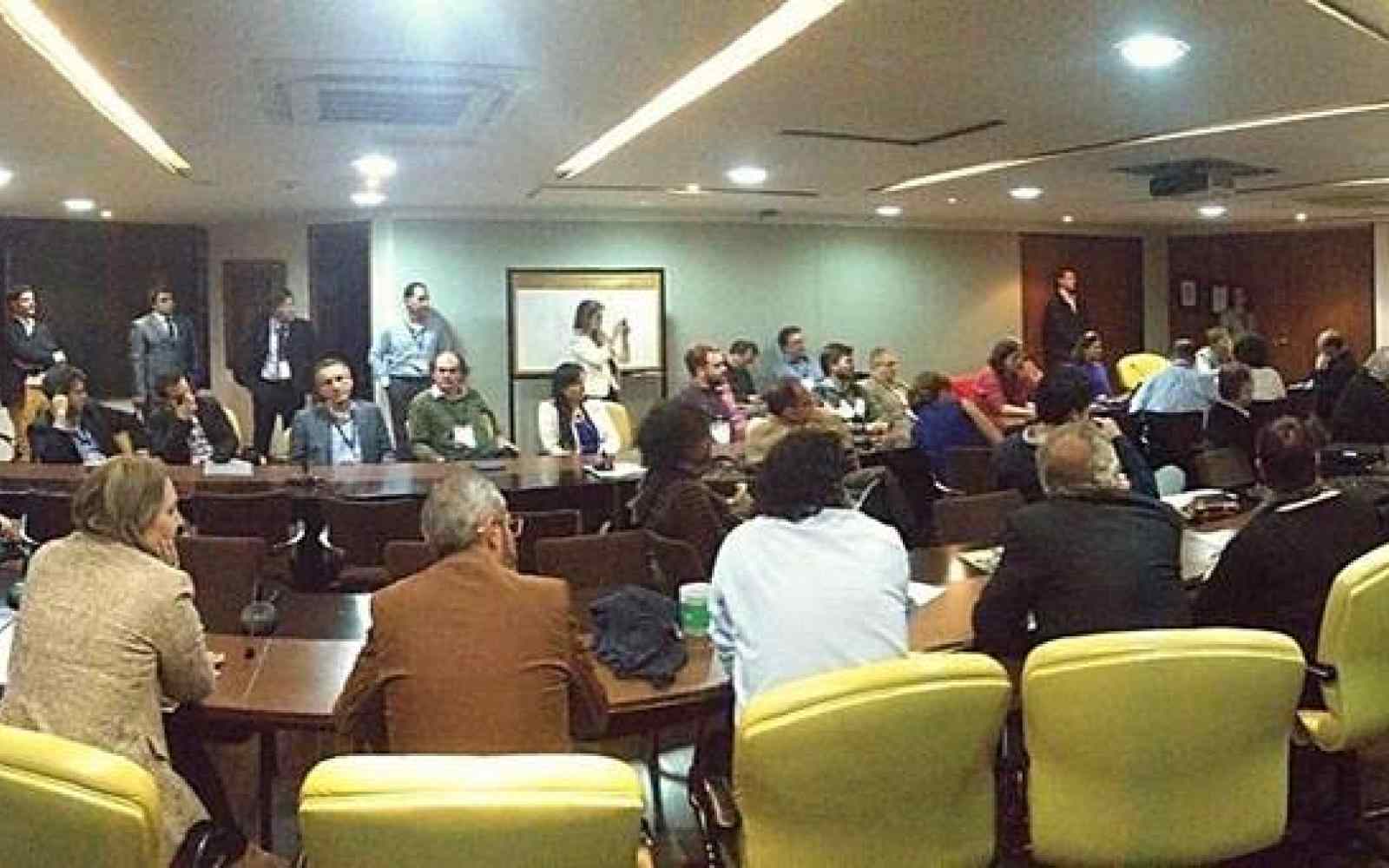This Globalizer Summit convened in Bogota, Colombia on November 7th – 9th, 2014.
Ashoka partnered with the Swiss Development Cooperation (SDC) to support social entrepreneurs in Latin America working for economic inclusion. The Globalizer Summit in Colombia brought together Ashoka Fellows with globally scalable innovations for poverty alleviation. These ideas are market-driven, have proven track records and involve entire communities to alleviate poverty.
These social influencers are ready to expand their innovations’ impact beyond localized organizations. They have varied strategies for increasing economic inclusion, such as:
• Beatriz Pellizzari, whose training and employment program challenges society’s prejudices about the professional prospects of the disabled
• Jose Manuel Moller, who is building networks of local grocery vendors to provide sustainable, low-cost food in vulnerable neighbourhoods while also rebuilding these communities’ social fabric
• Jacqueline Moreno Mendoza, whose barter system is empowering marginalized communities to draw on their own resources for development, shifting the paradigm of traditional development aid
• Francesco Piazzesi, whose auto-construction housing model provides low-income people with the opportunity to own safe, sustainable homes with community-based financing
The Globalizer Summit in Colombia matched these "ready to globalize” economic inclusion models with the strategic resources they need to rapidly and effectively achieve continental or global scale.
In the months leading up to November’s Globalizer Summit, Fellows built their scaling strategies with an advisory team of senior business executives and strategy consultants. At the Summit itself, global business leaders met with Fellows and critically analyzed their scaling strategies while also offering Fellows the strategic support and insight needed to enable these innovations to increase their impact dramatically.
OVERVIEW:
The Globalizer Summit on Economic Inclusion in Latin America convened 20 very experienced Social Entrepreneurs from the Americas whose proven inclusive business models engage people – living in low-income markets – in economic value chains as consumers, producers, and micro-entrepreneurs. In the process of supporting low-income entrepreneurs – and/or increasing access to sorely needed products and services in low-income segments – these inclusive business models offer great promise to enable business growth and creating economic opportunity and better standards of living for the poor. Yet, environmental conditions in these markets are extremely challenging, with significant gaps in the institutional, informational and infrastructural ecosystem required to make markets work. These environmental challenges are too systemic to be solved by a single social entrepreneur or inclusive business, alone. This is why several initiatives are trying to strengthen the Ecosystem from the macro level top-down. Thus, too little is known and done to strengthen innovative individual approaches, project-based alliances and platforms at the meso-level – spanning a wide range of market players in business, government, and civil society – which also bear a good chance of overcoming systemic barriers to scale the impact of Social Entrepreneurs. The Globalizer Ecosystem Day tackled exactly this challenge.
KEY OUTCOMES:
On the first day of the Globalizer Summit, the "Ecosystem Day" accomplished the following:
- Built Networks: The event engaged a diverse range of participants, reflective of different ecosystem barriers for scaling impact. The day allowed them to connect with one another, build trusting relationships, and discover shared areas of commonality.
- Shared Learnings: Participants connected over their expertise and information in order to map-out existing gaps in the Latin American support ecosystem for Social Entrepreneurs. They highlighted existing best-practice examples of innovative private initiatives by single Social Entrepreneurs to build their own solutions to overcome ecosystem gaps at the micro-level and international best-practice examples of proven collective coping strategies.
- Explore New Solutions: Identified international solutions to ecosystem gaps that can be imported to Colombia/Latin America. Participants engaged in creative disruption by reframing, reimagining, or recombining different elements and perspectives on how to overcome ecosystem gaps. They used the experience of international solutions in order to prototype new individual or collective solutions and develop ideas for their local adoption and scale.
List of all participating fellows below:
- Andre Albuquerque
- Ana Luisa Arocena
- Ricardo Cobo Díaz
- Catalina Escobar
- Andrés Fernández Martínez
- Jorge Gronda
- Asher Hasan
- Frank Hoffman
- Roberto Kikawa
- Eduardo Mallman
- Jose Manuel Moller
- Jaqueline Moreno Mendoza
- Gonzalo Muñoz
- Pablo Antonio Ordonez
- Beatriz Pellizzari
- Francesco Piazzesi
- Salomón Raydan
- Albina Ruiz
- Patrick Struebi
- Julian Ugarte
- Gregory van Kirk
MEET OUR STRATEGY THOUGHT PARTNERS
